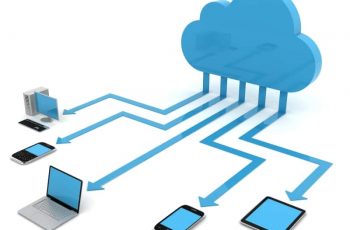Legal Billing Best Practices
How a law firm handles billing can really stick with clients. When billing is accurate, clear, and efficient, it shows professionalism, builds trust, and positively affects the firm’s financial well-being. Here are some top billing practices that can help law firms boost revenue, keep clients happy, and reduce any disagreements.
Establish Clear Billing Policies
Setting clear billing guidelines is crucial for both law firms and clients. Clients appreciate transparency, so clearly outline your billing rates, expected costs, and any potential extra fees upfront. Be specific about:
- Hourly rates or flat fees
- Retainer amounts and how they’re applied
- Incremental billing units (e.g., six-minute increments)
- Overtime or rush service fees
- Attorney fees versus paralegal or legal secretary fees
Create a formal billing policy that addresses each aspect of the fee structure. Incorporate these policies into your client agreement and communicate them clearly during the onboarding process. Not only does this improve transparency, but it also helps avoid disputes later.
Use Modern Legal Billing Software
Billing software for law firms is like having a personal assistant who never takes a coffee break—it streamlines invoicing, crunches numbers faster than a calculator on caffeine, and keeps errors at bay. Case management software systems are your trusty sidekick, where users actively track billable and non-billable hours straight from the action. And don’t forget, your software should be a multitasker, keeping an eye on expenses too. Here are some must-have features of top-notch legal billing software::
- Responsive time tracking
- Custom categorization of attorney actions and expenses
- Integration with accounting software
- Online payment processing that is fully integrated to reduce manual processes
- Detailed reporting capabilities, including customized reports
With legal billing software, firms can increase productivity, ensure accuracy, and access reports that help in analyzing revenue sources and costs.
Implement Time Tracking for All Tasks
Time tracking is the unsung hero of accurate billing—imagine it as the diligent backstage crew ensuring the performance runs smoothly without any interruptions. This process is crucial for capturing every billable moment, preventing any potential revenue from slipping through unnoticed. Encourage your legal team to meticulously record their time spent on client work. The days of manual time tracking are behind us; now, it's all about embracing responsive time-tracking tools that work actively within your case management software.
These handy tools not only make billing more accurate but also offer helpful data to fine-tune workflows, smartly allocate resources, and tweak service pricing when needed. By tapping into these insights, law firms can boost their efficiency and make sure their billing practices are spot-on and flexible to meet changing needs.
Create Detailed Invoices
It's important for clients to clearly see what they're being charged for. A well-organized, detailed invoice that outlines the activities billed helps keep everything transparent and reduces any confusion. A perfect invoice should include::
- Itemized entries for each task, with full descriptions. Just like you were taught back in law school 👍
- Specific descriptions for each task
- Dates when the work was completed
- Total time spent on each activity
- Rates applied for each task or time entry
Case management software automates much of this information, which is another great benefit. Creating clear, itemized invoices also helps clients see the value in the services they are paying for, reducing the chances of fee disputes.
Leverage LEDES Invoicing for Corporate Clients
For firms with corporate clients, adopting LEDES (Legal Electronic Data Exchange Standard) invoicing may streamline billing. This industry-standard format is specifically designed for legal billing, providing a structured way to submit invoices electronically. LEDES formats are widely used in corporate legal departments and often required by clients.
LEDES invoices reduce disputes and speed up payments, as they eliminate inconsistencies and provide all necessary details in a format easily processed by the client’s financial system.
Avoid Block Billing Practices
While it might seem like a quick fix to bundle tasks together, "block billing"—charging one lump sum for several tasks without breaking them down—can make clients feel a bit uneasy. It often raises questions about how clear and accurate the billing really is.
Instead, try listing each task separately, along with the time spent and the rate applied. This way, everything is crystal clear, and clients can easily see the value they're getting for their money, which helps build trust.
Adopt Flexible Payment Options
Clients really appreciate having a variety of payment options, like online payments with credit cards and ACH transfers. Invoicing software and legal billing tools often come with secure, user-friendly payment processing features. By offering multiple payment methods, you can help speed up cash flow and make the payment process smoother for everyone.
Also, think about offering payment plans for clients who might be going through financial difficulties. Look for case management software that supports flat fees, flat fee installment plans, hourly rates, trust accounts, and more. This kind of flexibility can boost client satisfaction and loyalty without putting a financial strain on your firm.
Set Up Recurring Billing for Long-Term Clients
For ongoing cases or long-term retainer clients, recurring billing can save time and improve cash flow predictability. Recurring billing automatically invoices clients at set intervals, making it easier to manage steady revenue.
Retainer arrangements benefit significantly from recurring billing, as clients expect regular service and often appreciate a predictable payment structure. Automated recurring billing also reduces administrative workload, allowing staff to focus more on billable activities.
Establish Clear Communication on Billing Questions
Clients might have questions about their bills, so it's a great idea to have a clear and friendly communication policy in place to avoid any mix-ups. Make sure the client knows who to contact to help with billing questions, and let clients know how to get in touch.
Encourage clients to reach out right away if they need any clarification on a charge or process. This friendly approach strengthens client relationships, quickly sorts out any issues, and builds trust.
Track Billing Data to Measure Performance
Digging into billing data is like having a crystal ball for productivity, revenue trends, and client satisfaction. Many legal billing systems come with reporting tools that let you play detective and uncover the mysteries of your financial performance, including:
- Track hours billed versus hours worked
- Identify revenue sources and trends
- Determine average revenue per client
- Analyze costs associated with specific cases
By reviewing these reports regularly, law firms can identify areas for improvement, make data-driven decisions, and create a more profitable and efficient billing process.
Set Up a Clear Collections Process
An effective collections process helps firms maintain steady cash flow. Develop a protocol that includes:
- Have the option to send reminder emails a few days before the due date
- Following up with late payments immediately
- Implement a collections timeline if payments are significantly overdue
While keeping a collections process in place, it's important to approach late payments with care and understanding. Legal services can be pricey, and some clients might face financial challenges. By offering payment plans or adjusting fees, you can help clients stay on board while ensuring the firm recovers fees over time.
Use a Client Portal for Easy Access to Invoices
A client portal from your case management software is like a handy hub where clients can easily check their invoices, see their billing history, and make payments. These portals make life easier for clients by giving them instant access to billing details and making the payment process a breeze.
For firms, client portals are a great way to cut down on the need for administrative help with billing questions. Clients can easily help themselves, whether they have billing inquiries or want to add notes, check on their next appointment, matter updates, and upload documents, among other benefits.
Conclusion
Putting these top-notch billing practices into action can really boost a law firm's efficiency, keep clients happy, and make revenue more predictable. By setting clear policies, using cutting-edge billing software, and being transparent, law firms can strengthen their relationships with clients and cut down on billing hiccups. Think of these strategies as part of a bigger plan to offer professional, dependable, and client-friendly legal services.


